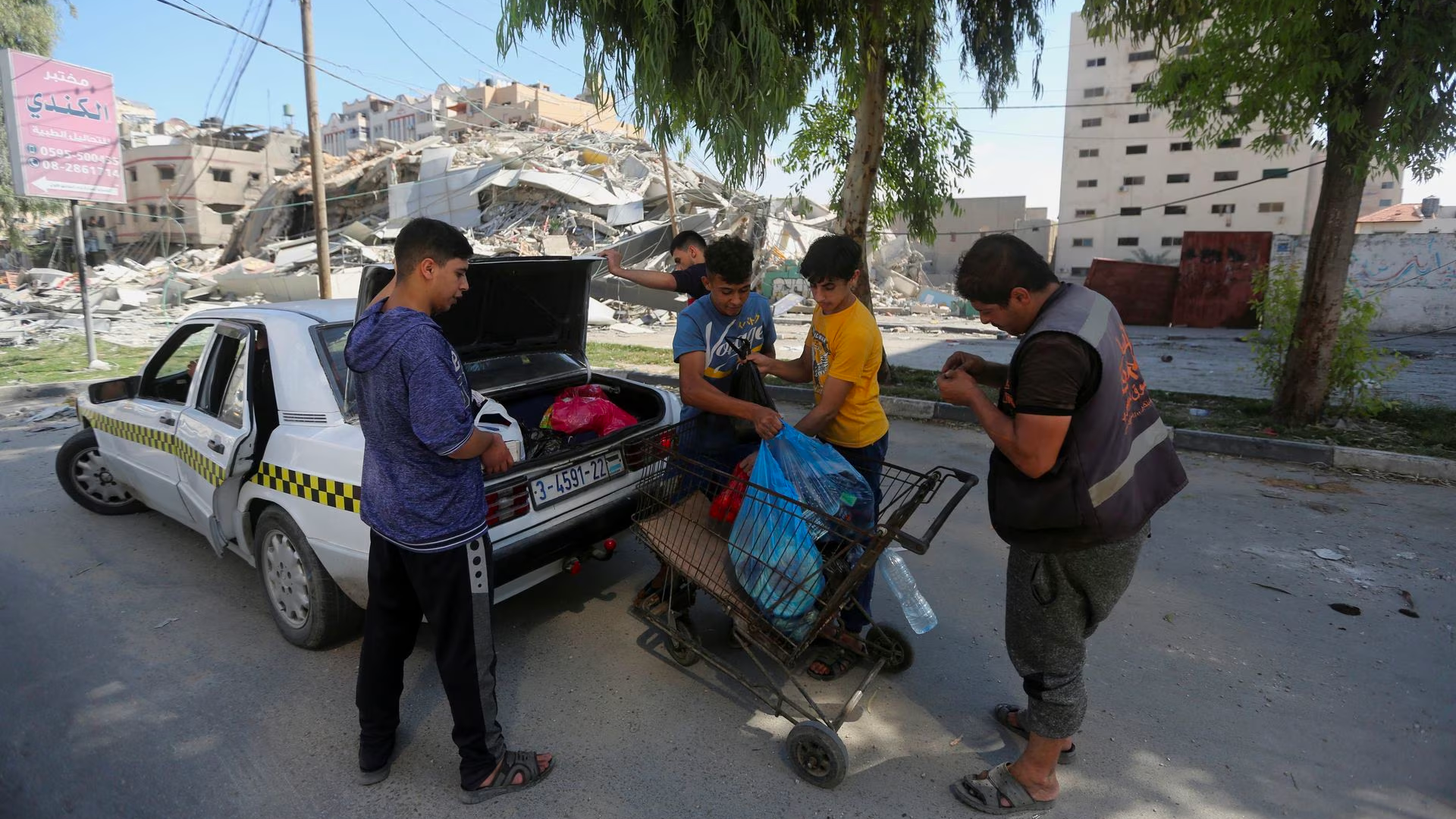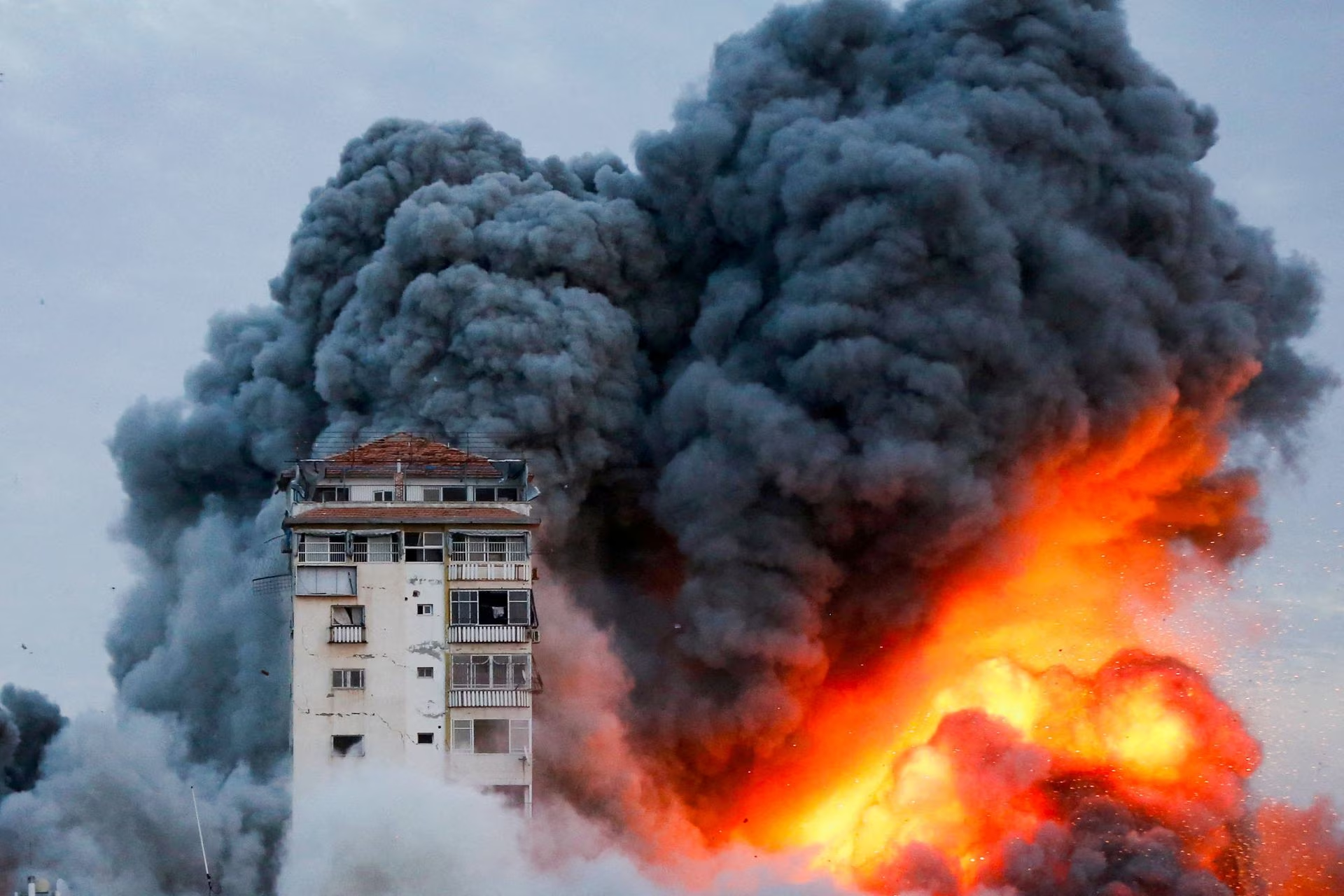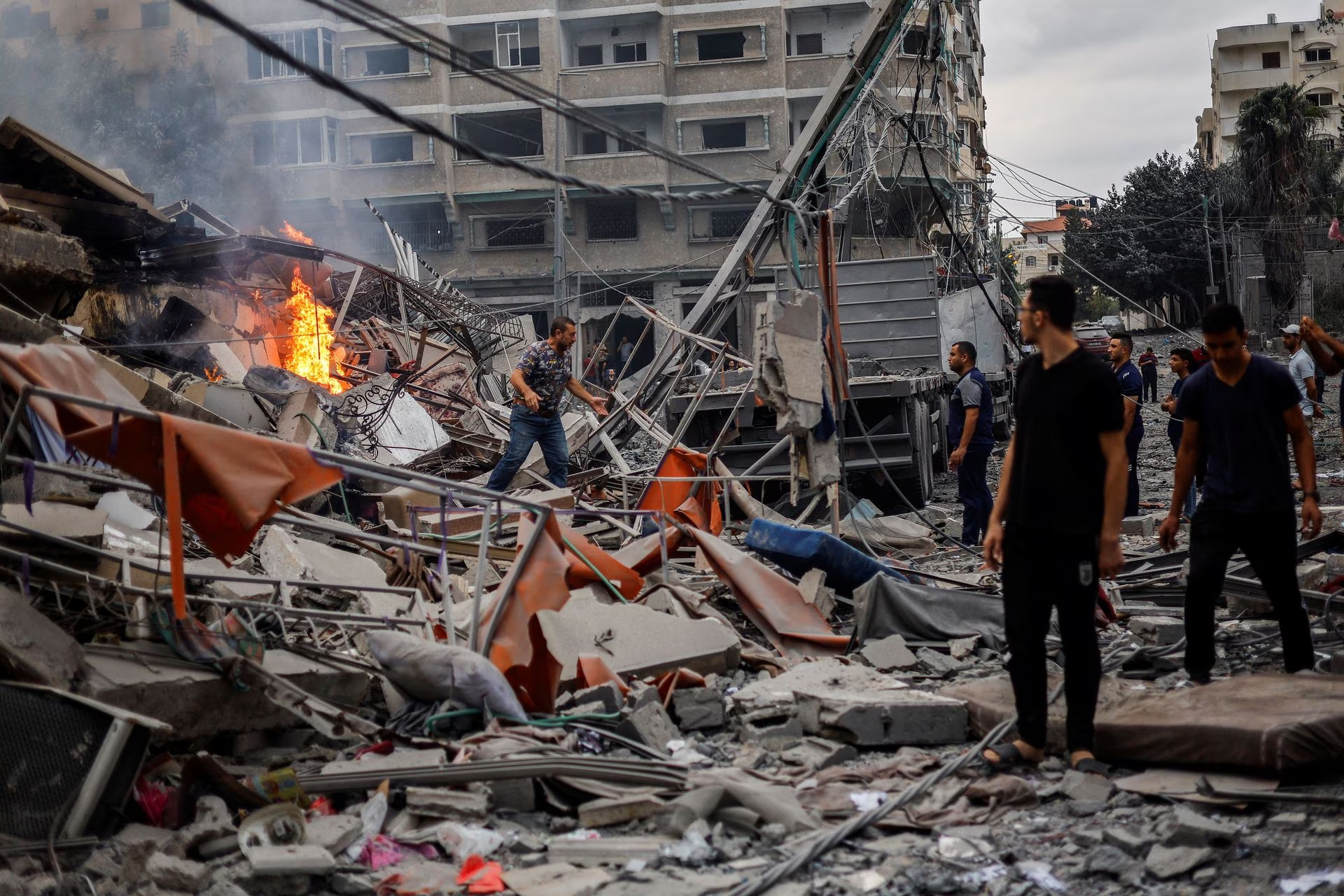Humanitarian crisis worsens as Palestinians flee their homes


Palestinians flee their houses heading toward the southern part of Gaza Strip after Israel’s call for more than 1 million civilians in northern Gaza to move south within 24 hours, amid the Israeli-Palestinian conflict in Gaza City, October 13, 2023. /Reuters
Palestinians flee their houses heading toward the southern part of Gaza Strip after Israel’s call for more than 1 million civilians in northern Gaza to move south within 24 hours, amid the Israeli-Palestinian conflict in Gaza City, October 13, 2023. /Reuters
Tens of thousands of Palestinians are fleeing northern Gaza after the Israeli government ordered over 1 million people to evacuate to the southern part of the besieged territory within 24 hours, before an imminent Israeli ground operation.
The United Nations urged Israel to reverse this directive, saying that evacuating nearly half of the densely populated Gaza’s population would have “devastating humanitarian consequences.”
For many, the recent mass evacuation order stirred fears of a second expulsion. At least 423,000 people, nearly one in five of Gaza’s 2.3 million residents, have already been displaced from their homes due to Israeli airstrikes, the UN reported.
Over half of Gaza’s Palestinian population are descendants of refugees from the 1948 war that accompanied Israel’s establishment. During that conflict, hundreds of thousands either fled or were expelled from what is now Israel.
Worsened humanitarian crisis
The civilian population has been paying a high price in this nearly week-old conflict.
The conflict began with a massive Hamas terror attack, which targeted military bases and civilians areas including towns, villages, kibbutzim and a music festival on October 7. More than 1,300 people lost their lives, with the majority of the casualties being Israeli civilians.
Since then, hundreds of thousands have been forced to flee within the territory under continuous bombardment as Israel retaliates. The death toll among Palestinians has surpassed 1,900, with over half of the victims being under the age of 18 or women, according to Gaza authorities.

Smoke and flames billow after Israeli forces struck a high-rise tower in Gaza City, October 7, 2023. /Reuters
Smoke and flames billow after Israeli forces struck a high-rise tower in Gaza City, October 7, 2023. /Reuters
Meanwhile, suffering in Gaza escalated with Palestinians in desperate need of food, water and medicine, after a “total blockade” of Gaza imposed on October 9.
Usually, food and fuel are brought into Gaza through Israel’s Kerem Shalom crossing, where all imports undergo inspections. Even drinking water, procured by the Palestinian National Authority from Israel for Gaza Strip residents, is now unavailable.
Food, electricity and fuel have become secondary concerns, sadi Nebal Farsakh, a spokesperson for the Palestinian Red Crescent in Gaza City.
“The only concern now is just if you’ll make it, if you’re going to live.”
Due to a fuel shortage, the territory’s only power plant has shut down, forcing hospitals and other critical services to depend on generators for power. However, these generators also rely on dwindling fuel supplies.
“While hospitals were grappling with the evacuation of dozens of patients, the Gaza Health Ministry has expressed the impossibility of safely transporting the wounded individuals from hospitals, which are already overwhelmed by a high volume of casualties.
Philippe Lazzarini, commissioner general of the UN agency for Palestinian refugees, described the situation, saying, “The scale and speed of the unfolding humanitarian crisis is bone-chilling. Gaza is fast becoming a hellhole and is on the brink of collapse.”

Palestinians watch a fire burn among the rubble of a damaged residential building, in the aftermath of Israeli strikes, in Gaza City, October 10, 2023. /Reuters
Palestinians watch a fire burn among the rubble of a damaged residential building, in the aftermath of Israeli strikes, in Gaza City, October 10, 2023. /Reuters
Moves in violation of international law
The deadly attacks carried out by Hamas against Israeli civilians, as well as the devastating Israeli airstrikes and blockade of Gaza, have raised accusations from international legal experts, who argue that both sides were violating international law.
“Intentional targeting of civilians and civilian objects without a military necessary reason to do so is a war crime, period,” said David Crane, an American international law expert and the founding chief prosecutor of the UN Special Court for Sierra Leone. “And that’s a standard that both sides are held to under international law.”
Omar Shakir, the Israel and Palestine Director of Human Rights Watch, noted that Hamas has been shooting civilians in large numbers and taking hostages, including women and children, which undeniably constitutes serious violations of international law.
He pointed out that the blockade also breaches international law, saying that collective punishment, such as cutting off electricity, water and food, and blocking aid from entering the Gaza Strip, amounts to a war crime, and Israel is engaged in such practices.”
In an analysis published on the international law website Opinio Juris, Cornell Law School professor Jens David Ohlin, wrote that the Hamas attacks could be categorized as war crimes and crimes against humanity according to the International Criminal Court’s founding Rome Statute.
“The images and videos from the Hamas terror attacks are brutal and painful to watch. They reflect a breakdown of our common humanity and I condemn them in the strongest possible terms,” he wrote.

